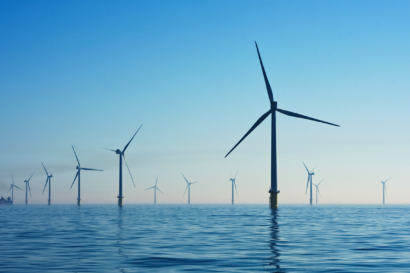PRESS RELEASES | 23/09/2022
Smart regulation, incentives and support for infrastructure vital for a thriving low carbon economy

Reacting to today’s announcements by the Chancellor of the Exchequer, Ana Musat, Head of Policy at the Aldersgate Group said: “The Chancellor’s announcements today contain some necessary measures to support households and businesses in the midst of the energy crisis., Longer term measures to drive investment in renewables through support for quicker onshore wind development and a streamlined planning process are also welcome, and will ensure that we continue bringing cheap, domestic renewables online as quickly as possible. Research has shown that this is essential for achieving a low cost, secure energy supply: in 2021, renewable generation helped the UK avoid importing more LNG, which would have cost £30bn at current prices and would have made us more dependent on imports.[1]
Ana Musat added: “The focus on economic growth, job creation and attracting investment has been the cornerstone of today’s budget announcements. While tax cuts in certain areas do hold the potential to free up capital that can drive much needed investment, they must be accompanied by appropriate regulation and support for infrastructure delivery to direct capital towards high-productivity sectors, such as hydrogen production, low carbon manufacturing and renewable generation.
Ana Musat concluded: The right combination of incentives and regulation will deliver a level playing field and ensure that businesses investing in low carbon solutions are not simply undercut on price. Smart regulation, tax incentives and support for infrastructure development can ensure that the UK leads the world in low carbon investment, which offers a chance to grow the economy, create jobs across the country and boost exports in the long term. This has already been shown to be the cases offshore wind and hydrogen, which could deliver around 70,000 and 5,000 jobs respectively.[2]”
References
[1] RenewableUK (23 September 2022)
LNG imports would have to rise by nearly 150% at cost of £30bn to billpayers without renewables
[2] Offshore Wind Industry Council [OWIC] (2021), Offshore Wind Skills Intelligence Model Report and Hynet (2018)


